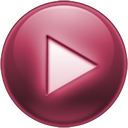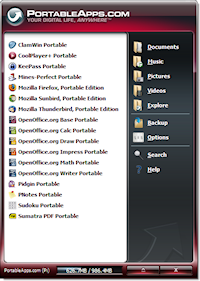 One of the key points in my Effective Internet Lockdown: Good Habits post was to use RSS to control your browsing habits. RSS (Really Simple Syndication) is effectively a collection of technologies that allows you to get content from your favourite websites without having to actually visit the site (and get distracted by all the links and ads). A decent RSS feed aggregator (an application or service that brings all your RSS feeds into one place) is an excellent tool for managing your browsing.
One of the key points in my Effective Internet Lockdown: Good Habits post was to use RSS to control your browsing habits. RSS (Really Simple Syndication) is effectively a collection of technologies that allows you to get content from your favourite websites without having to actually visit the site (and get distracted by all the links and ads). A decent RSS feed aggregator (an application or service that brings all your RSS feeds into one place) is an excellent tool for managing your browsing.
When choosing a solution for my needs, my guiding needs were:
- Feeds must be easy to manage.
- Rich content in feeds must be supported.
- The workflow must not interfere with my own work.
- As a bonus, access from everywhere would be nice.
I settled on a combination of Google Reader and the excellent AideRSS to meet these needs.
Feeds must be easy to manage
Built in feed support in Firefox means that adding feeds to Google Reader is a simple case of clicking on the feed icon in Firefox's address bar and choosing Google Reader. Management in reader is really intuitive with drag and drop functionality, easy deletion of feeds and nice extras like tagging, starring and sharing.
AideRSS comes in for feeds that I suspect may be a bit post heavy, with loads of unnecessary posts coming through daily (think SlashDot or Digg). It allows you to enter a feed (or choose one already set up by others ) and get a limited feed for only the most popular posts.
Rich content support
Being browser based, Google reader supports anything the host browser does. This includes images, audio and flash based video (such as YouTube).
Non-invasive workflow
Since there is no app installed with automatic notifications, this is a given. Google reader is there when I need it in my browser, gone when I don't need it. I actually tend to use the compact reader gadget for iGoogle more than the main reader interface, so it really fits in well by just being a part of my homepage. The gadget presents a scrollable list of all new feed item headings, and clicking on one opens up a 'speech bubble' with the item contents (also scrollable).
Access from anywhere
 Once again Google manages to come up trumps on the mobile side of things too, meeting the bonus requirement. The mobile version of Google reader is as clean and simple as all their other mobile apps, presenting the user with a list of the ten newest items and additional links to see more items, mark items read, view tagged items and star individual items. It's a great way to pass the time while waiting for a dentist appointment.
Once again Google manages to come up trumps on the mobile side of things too, meeting the bonus requirement. The mobile version of Google reader is as clean and simple as all their other mobile apps, presenting the user with a list of the ten newest items and additional links to see more items, mark items read, view tagged items and star individual items. It's a great way to pass the time while waiting for a dentist appointment.
Tools are not enough
RSS can be just as addictive as normal browsing, and explicitly adding feeds to your aggregator can inadvertently 'commit' you to reading every post. This is a trap a surprising number of people fall into, and with the ease of subscribing to feeds the list of items begging for your attention can grow quickly. It's important to get comfortable with the idea of just marking everything unread and start with a clean slate. Just as you really don't have to read every single article in the newspaper or listen to every single half-hourly news broadcast on the radio, there's nothing wrong with damming the flood of digital information and starting over!
 I'm currently working on a community service website that I hope will be up in a month or so. Working on the site has had my mind buzzing about other useful community site ideas, one was a site to link people with charities or organizations that would help them get involved. It turns out it's such a good idea, it's already been done :)
I'm currently working on a community service website that I hope will be up in a month or so. Working on the site has had my mind buzzing about other useful community site ideas, one was a site to link people with charities or organizations that would help them get involved. It turns out it's such a good idea, it's already been done :) Music on the go
Music on the go Keeping with the portable stuff, the PortableApps launcher and backup apps have been given an 'official' update to 1.1. The new features in the released have been tested through a few beta versions so it should be pretty stable. Now being referred to as the PortableApps 'platform', three installation flavours are available:
Keeping with the portable stuff, the PortableApps launcher and backup apps have been given an 'official' update to 1.1. The new features in the released have been tested through a few beta versions so it should be pretty stable. Now being referred to as the PortableApps 'platform', three installation flavours are available: The push on palm oil consuming companies
The push on palm oil consuming companies  One of the key points in my
One of the key points in my 




